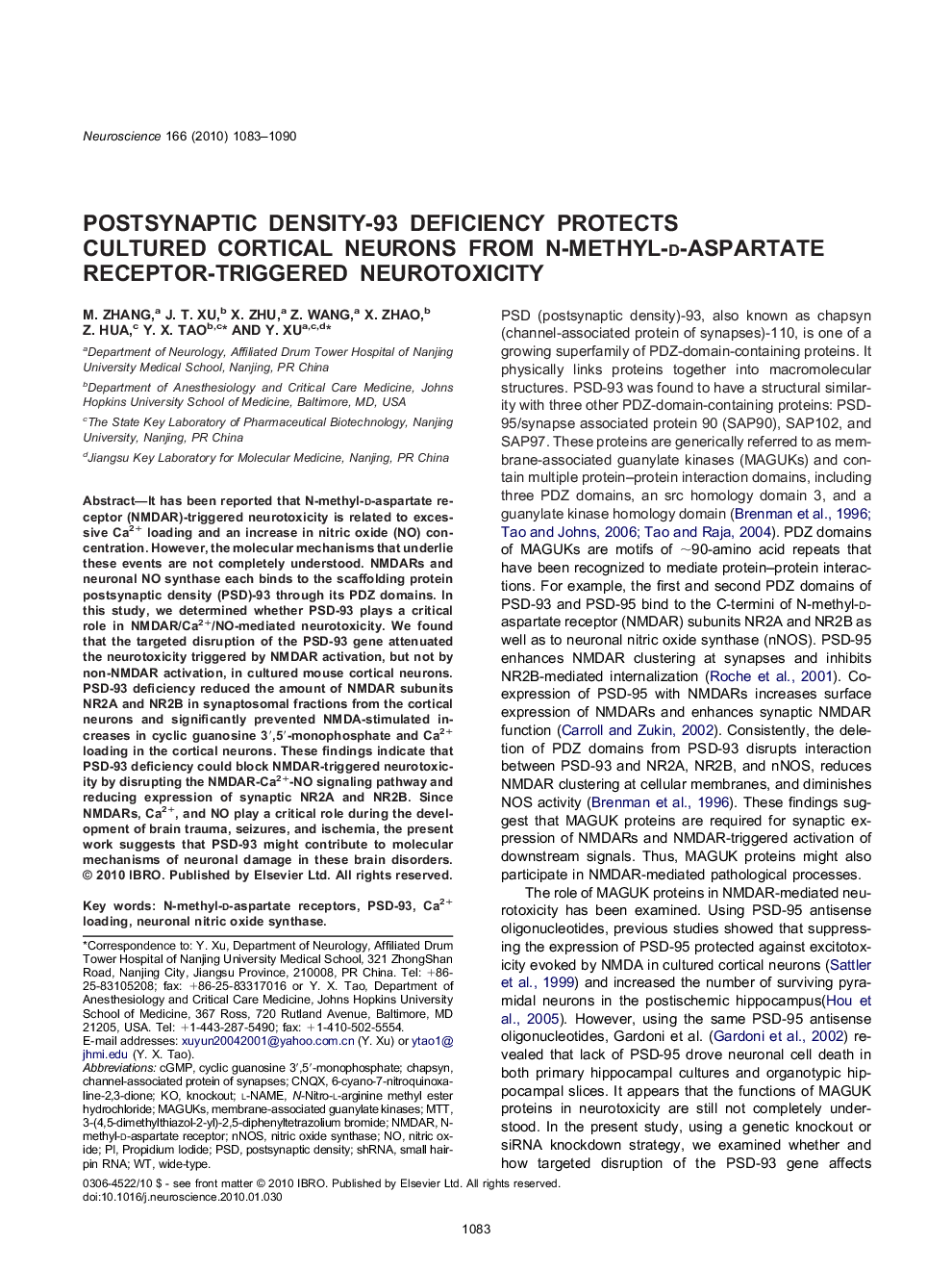| Article ID | Journal | Published Year | Pages | File Type |
|---|---|---|---|---|
| 4339387 | Neuroscience | 2010 | 8 Pages |
Abstract
It has been reported that N-methyl-d-aspartate receptor (NMDAR)-triggered neurotoxicity is related to excessive Ca2+ loading and an increase in nitric oxide (NO) concentration. However, the molecular mechanisms that underlie these events are not completely understood. NMDARs and neuronal NO synthase each binds to the scaffolding protein postsynaptic density (PSD)-93 through its PDZ domains. In this study, we determined whether PSD-93 plays a critical role in NMDAR/Ca2+/NO-mediated neurotoxicity. We found that the targeted disruption of the PSD-93 gene attenuated the neurotoxicity triggered by NMDAR activation, but not by non-NMDAR activation, in cultured mouse cortical neurons. PSD-93 deficiency reduced the amount of NMDAR subunits NR2A and NR2B in synaptosomal fractions from the cortical neurons and significantly prevented NMDA-stimulated increases in cyclic guanosine 3â²,5â²-monophosphate and Ca2+ loading in the cortical neurons. These findings indicate that PSD-93 deficiency could block NMDAR-triggered neurotoxicity by disrupting the NMDAR-Ca2+-NO signaling pathway and reducing expression of synaptic NR2A and NR2B. Since NMDARs, Ca2+, and NO play a critical role during the development of brain trauma, seizures, and ischemia, the present work suggests that PSD-93 might contribute to molecular mechanisms of neuronal damage in these brain disorders.
Keywords
nNOSmembrane-associated guanylate kinasesMAGUKswide-typeNMDARPSD-93cGMPshRNAPSD3-(4,5-dimethylthiazol-2-yl)-2,5-diphenyltetrazolium bromide6-Cyano-7-nitroquinoxaline-2,3-dionel-NAMEMTTsmall hairpin RNApostsynaptic densityneuronal nitric oxide synthaseCNQXknockoutNitric oxidenitric oxide synthasePropidium iodidecyclic guanosine 3′,5′-monophosphateN-methyl-d-aspartate receptorN-Methyl-d-aspartate receptors
Related Topics
Life Sciences
Neuroscience
Neuroscience (General)
Authors
M. Zhang, J.T. Xu, X. Zhu, Z. Wang, X. Zhao, Z. Hua, Y.X. Tao, Y. Xu,
